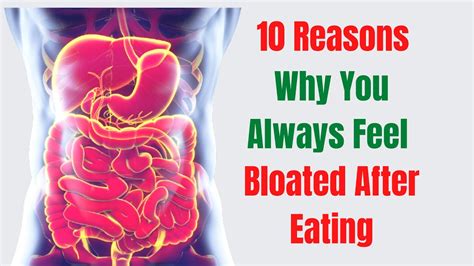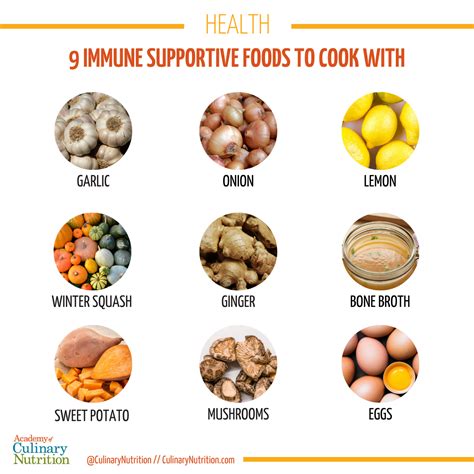Bloating After Eating Snacks? Here are Bloat less Snacks To Nosh On Now
Snack options–they are endless and available at our fingertips. While convenient, they aren’t necessarily a perk for everyone’s stomach or nutritional needs. For many of us, certain snacks lead to uncomfortable feelings–hello, bloating after eating! The culprit might be a bag of chips, a fizzy soda, or even a seemingly innocent high-fiber granola bar. Bloating, […] The post Bloating After Eating Snacks? Here are Bloat “less” Snacks To Nosh On Now appeared first on HUM Nutrition Blog.

Snack options–they are endless and available at our fingertips. While convenient, they aren’t necessarily a perk for everyone’s stomach or nutritional needs. For many of us, certain snacks lead to uncomfortable feelings–hello, bloating after eating! The culprit might be a bag of chips, a fizzy soda, or even a seemingly innocent high-fiber granola bar. Bloating, caused by excess gas, fluid retention, or slow digestion, can put a damper on your day and leave you feeling less than your best.
Fortunately, there are plenty of snacks in the sea (of options) that are less likely to cause unwelcome puffiness. Once you determine the types of foods that cause bloating (or specific ingredients), you can more easily avoid them. Let’s take a look at common food factors that cause bloating and the types of snacks that are less likely to lead to gassy discomfort.
Understanding Bloating to Bloat Less
Bloating is a common gastrointestinal issue that occurs when your abdomen feels full, swollen, and tight. You might feel gas bubbles or even mild pain. These feelings are primarily attributed to the buildup of gas in your digestive system, fluid retention, or slowed digestion. But how do these things happen in the first place?
Excessive gas production can result from the breakdown of certain foods by the community of bacteria in your digestive tract. This leads to the release of gases like methane and hydrogen, which can build up and cause discomfort.
Fluid retention is often caused by eating a lot of sodium or added salt, as this draws water out of your cells and tissues and into your bloodstream. This causes your body to hang onto more water and can disrupt the fluid balance.
Finally, slow digestion could result from things like low fiber intake, a sedentary lifestyle, or dehydration. When your digestion is slowed, this allows food to linger in your stomach and intestines, which can promote a sense of fullness and discomfort.
Foods That Cause Bloating After Eating
When it comes to choosing snacks that won’t induce bloating, steering clear of certain culprits is key. What causes bloating for one person may not affect someone else, so it’s important to pay attention to the foods that cause bloating for you.
In general, snacks that are more likely to promote bloating often have one or more of the following characteristics:
- High sodium content: Snacks high in sodium, such as traditional potato chips or salted nuts, can lead to water retention, contributing to that uncomfortable bloated feeling.
- Carbonation: Carbonated beverages introduce gas into your digestive system, which could potentially exacerbate bloating symptoms if you drink them regularly and in large quantities. Examples include seltzers, sodas, kombucha, and other fizzy drinks.
- High fiber content: For people who aren’t used to consuming much fiber (which may be a high percentage of the population), suddenly adding high-fiber snacks could lead to bloating. High-fiber snacks take longer to digest than low-fiber snacks.
- Artificial sweeteners: Foods with artificial sweeteners, especially sugar alcohols often found in “diet”, “light”, or sugar-free products, can be hard for some people to digest, leading to bloating. Sugar alcohols aren’t completely absorbed in your small intestine, so they are fermented in your colon where they produce gas that can accumulate and promote bloating.
- Ultra-processed and fried foods: These types of foods are often laden with unhealthy saturated fats, which may slow down digestion and cause discomfort. Not to mention, they tend to be low in overall nutritional benefit.
- Dairy: Many people are sensitive to dairy and therefore likely to experience digestive side effects from consuming dairy-derived snacks and ingredients. Over 65% of the global population is lactose intolerant to some degree.
Avoiding snacks with these characteristics and instead opting for snacks with lower sodium levels, minimal processing, and easily digestible ingredients can make a significant difference in preventing bloating.
7 Snacks That Won’t Cause (as Much) Bloating
Snacks that are less likely to promote bloating are minimally processed and of higher nutritional quality. We asked 7 registered dietitians to provide their favorite bloat-less snacks, which are listed below
1. Fresh fruits and veggies
“My go-to snack is raw fruit or veggies with nut butter,” says Sydnee Mostek, RDN, ACSM-EP of Rooted Wellness Academy. “Raw produce means I have to take the time to thoroughly chew my food so I eat more mindfully, and the fat, fiber, and protein from the nut butter keeps me full until my next meal or snack.”
Fresh fruits and vegetables, rich in fiber and water content, provide a satisfying crunch without contributing to excess gas. Some are more water-rich than others, such as cucumbers, watermelon, and strawberries, which can help satisfy crunchy or sweet snack cravings while also supporting optimal fluid balance.
2. Homemade trail mix
Alyssa Simpson RDN, CGN, CLT of Nutrition Resolution says, “My go-to non-bloating snack is a homemade mix of gluten-free pretzels, Rice Chex, 1 Tbsp raisins or dried cranberries, 1 Tbsp chocolate chips, and 1 Tbsp nuts. It’s easy to prepare in batches, perfect for on-the-go in pre-portioned ziplock bags, offering a balanced blend of fiber, carbohydrates, protein, and fat for sustained energy and controlled blood sugar without excess calories.”
You can create your version of trail mix with other favorite non-bloating ingredients. Consider other no-added-sugar dried fruits, dehydrated legumes, seeds, and whole grains that satisfy your appetite with unwanted side effects.
3. Low FODMAP snacks
Katie Schimmelpfenning, RD of Eat Swim Win says her favorite bloat-less snacks include, “Rice cakes with nut butter and/or jam, homemade smoothies, hard cheese and rice crackers, or low-lactose/lactose-free yogurt with berries.”
FODMAPs are a type of short-chain carbohydrate that can resist digestion. The acronym stands for fermentable oligosaccharides, disaccharides, monosaccharides, and polyols.
While eliminating or minimizing FODMAPs in the diet — found in foods like apples, sugar alcohols, garlic, onions, and more — is primarily beneficial for people with existing digestive issues (like irritable bowel syndrome), they may promote bloating among people with FODMAP sensitivities.
4. Plain nuts and seeds
“My favorite anti-bloat snacks are plain almonds, which are full of healthy fats and fiber,” says Wan Na Chun, MPH, RD, CPT of One Pot Wellness. “Dietary fiber is important because it helps add bulk to stool which helps prevent constipation and bloating. Having just a handful of almonds a day can be a great quick snack that doesn’t cause gastrointestinal discomfort or bloating.”
Nuts and seeds offer a nutrient-dense alternative, providing healthy fats and protein without the sodium and added sugar often found in traditional ultra-processed snacks. Just be sure to choose unsalted options.
5. Smoked salmon on toast
“A favorite brain-healthy snack of mine is smoked salmon on whole grain toast with a smear of cream cheese,” says Jessie Hulsey RD, LD of Health Down South. “It makes for a yummy combination of protein, healthy fats, and whole grains, without the worry of bloating.”
Salmon is an excellent source of the omega-3 fatty acids EPA and DHA, which benefit brain and eye health. A combination like this can promote fullness without discomfort, as well as a variety of important nutrients.
6. Savory cottage cheese
Alyssa Pacheco, RD of The PCOS Nutritionist notes, “I love a good savory cottage cheese bowl for snacks! Mix some 2% cottage cheese with chives, pepitas, and chopped veggies like cucumber, bell peppers, and tomatoes for a protein-packed, filling snack. The cottage cheese provides some probiotics to help improve your digestive health and reduce bloating.”
Experiment with the types of flavors you enjoy with your cottage cheese. If you don’t like savory versions, you could also add fresh fruits like sliced bananas, blueberries, or strawberries with a dash of ground flax seeds.
7. Hard-boiled eggs
Christina Iaboni, RD says, “One of my favorite snacks is two hard-boiled eggs. They contain protein to keep me full as well as plenty of other vitamins and minerals such as B12, choline, Vitamin A, and selenium which support good health.”
Eggs are a compact and nutrient-dense snack and can be convenient to take with you on the go. Pair them with a piece of fruit, some whole grain crackers, and/or some nuts for a well-rounded small plate.
Other Tips for Preventing Bloating After Eating
In addition to avoiding foods that cause bloating, adopting habits can further contribute to preventing bloating and maintaining digestive comfort.
Staying hydrated
Staying hydrated is important for your overall health, as your body is around 75% water at any given time and your fluid levels need to be replenished regularly. Ample water intake also helps facilitate smooth digestion and minimize water retention and feelings of bloating.
Exercise
Regular exercise benefits all aspects of your overall health and wellness, but physical movement may be particularly good for your digestive process. Research also shows that even 10-15 minutes of walking following a meal can help minimize digestive effects like bloating.
Using digestive aids for Bloating After Eating
If you have trouble digesting certain ingredients, you might consider relevant digestive aids like HUM’s Flatter Me.
Probiotics and prebiotics
Maintaining a healthy balance of microbes in your gut, also known as your gut microbiome, is essential for all aspects of your health, including a reduced risk of various diseases. A healthy gut microbiome — AKA having more disease-fighting microbes than disease-promoting microbes — is also less likely to promote uncomfortable symptoms like bloating.
Probiotics are known as the good bacteria in your gut. Regular intake of fermented foods, like tempeh, miso, and sauerkraut, can support a healthy gut microbiome as they contain natural digestion-promoting probiotics. Prebiotics act as fuel for probiotics and can be found in foods like bananas, chicory root, and Jerusalem artichokes. Try HUM’s Gut Instinct Probiotic to help maintain a healthy microbiome.
Herbal remedies
Integrating herbs like ginger and peppermint into your routine may help alleviate bloating symptoms, as these natural remedies are known for their soothing effects on the digestive system. One of the easiest ways to add these to your day is by making an herbal tea.
Ultimately, a combination of mindful eating habits and strategic additions to your routine can go a long way in preventing bloating and promoting a more comfortable and balanced snacking experience.
Healthy Snacks, Happy Gut
Bloating is an annoying, albeit common, side effect that we all experience on occasion. However, if you’re regularly bloating after eating certain snacks, start by identifying potential triggers and determining where you can make healthier bloat-less substitutes.
Choosing minimally processed and nutrient-dense versus ultra-processed snacks is the best way to prevent bloating and other uncomfortable digestive side effects. Additionally, incorporate other healthy everyday habits that support gut health, like exercise, hydration, and natural probiotics.
The post Bloating After Eating Snacks? Here are Bloat “less” Snacks To Nosh On Now appeared first on HUM Nutrition Blog.

 mainadmin
mainadmin 










